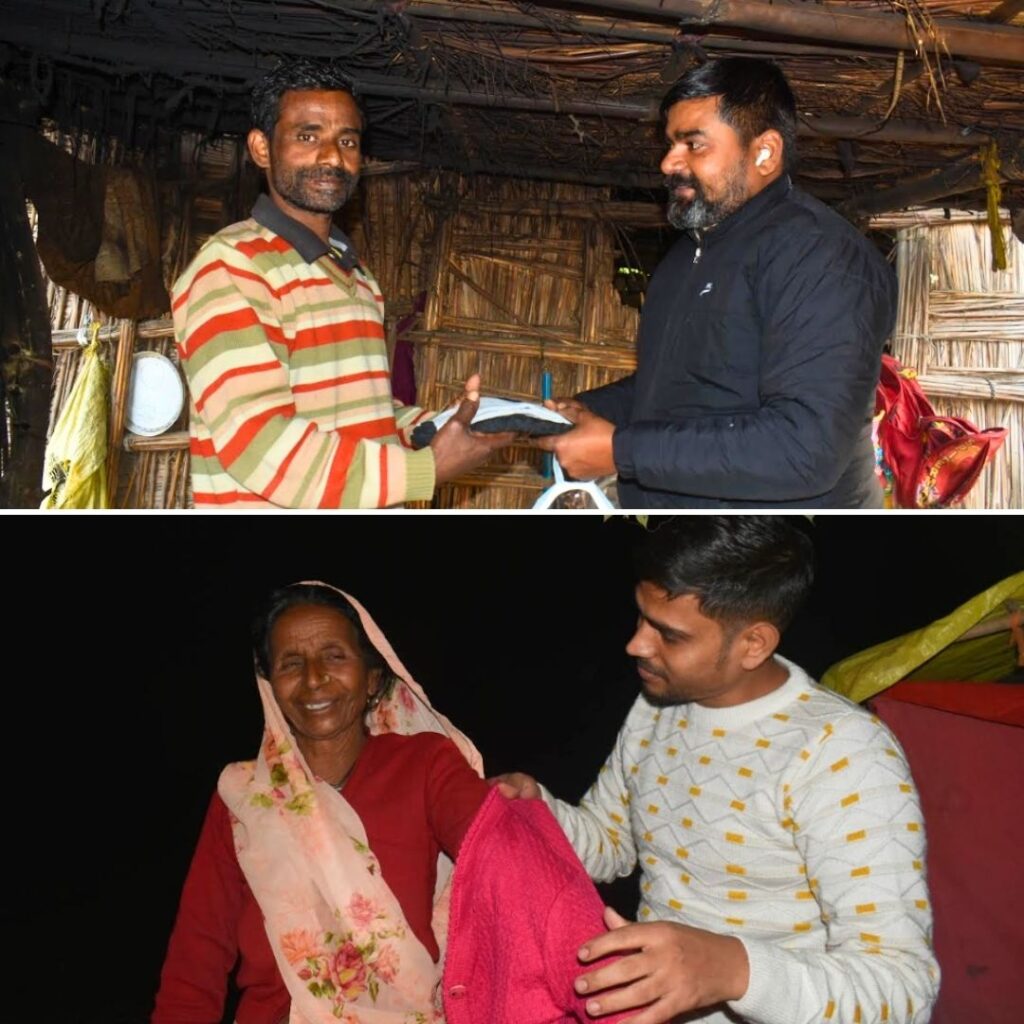Declining fish catch since August 2019 has triggered a wave of worry amongst fishers across the economic spectrum in southern Karnataka.Climate change, unsustainable and unregulated fishing methods have both been blamed for this decline.Small-scale fishers are the most affected, and are now seeking support from the government.
January 18th, 2020. It is a hot Saturday afternoon in Sasihithlu, a small fishing village in southern Karnataka. At 12:30 PM, the sun is directly above us, glaring through a largely cloudless sky. Surya Salian, 62, gathers his cast net for a final throw. He enters the still blue water until it is waist-high. He swings his arm and throws the circular net. It forms a shimmering translucent circle in the air for a few seconds, then drops into the water. After a few minutes, he pulls it out. It has one small fish, a silver biddy, wriggling. He throws it on the white sand, next to three other fish caught a short while ago.
‘This might be the year of famine for us,’ he said, after a moment.
Surya Sailan waiting after casting his net. Photo by Supriya Vohra.
January 19th, 2020. It is balmy and breezy at 4 AM in the Arabian Sea. A purse seiner, a big boat that goes out about 15 nautical miles into the ocean to catch Indian oil sardines, is ready to head out. Most of the crew on the ship is from Odisha, Jharkhand and Andhra Pradesh. They left because their land did not offer them a living, and they arrived here, on the west coast, in south Karnataka, working on big fishing boats, hoping for a better life. After six hours, the ship returns, empty-handed. The crew members earn nothing for the day.
Since August 2019, fishers across the spectrum, from the small-scale ones to owners of giant trawlers, echo a similar lament. There are no fish in the ocean. Although the official fish catch data for 2019-2020 will be released only after March 2020, officials from Central Marine Fisheries of India (CMFRI) have confirmed that there has been a significant decline in fish catch since the post-monsoon season.
‘Usually, the post-monsoon period is peak fishing time. There is some cause of concern that the peak season did not do well,’ said Sunil Mohamed, principal scientist and head, Molluscan Fisheries Division, CMFRI, over a telephone conversation.
There has been a decline in coastal marine fish production in India over the last few years. CMFRI data reveals a 9% decline in overall fish catch in 2018 as compared to the previous year. The 2018 annual fish landing data from the institute also showed a 54% decline since 2017 of the Indian oil sardine (Sardinella longiceps), a pelagic fish found abundantly in the Arabian Sea, particularly the coastal waters that cover Karnataka.
Eyes peeled for Indian oil sardine on the crow’s nest in a purse seiner. Photo by Supriya Vohra.
‘We have seen a major decline in the Indian Oil sardine since 2016,’ said Mohamed. ‘For a long time, it formed 30-40% of fish catch. It reduced to 15%, and now barely makes it to 5%,’ he said.
Reasons For The Decline In Fish Catch
Experts have given a variety of reasons for the decline of fish catch.
There’s climate change; the rise in sea surface temperature is changing the nature of oceans, which in turn affects the phytoplankton production, a primary food for several pelagic fish in the ocean, including Indian oil sardines. The Intergovernmental Panel for Climate Change released a report last year stating that there will be an unprecedented rise in the frequency of cyclones in the Arabian Sea due to anthropogenic warming of the oceans.
Secondly, there are unsustainable methods of fishing. Bull (or pair) trawling involves tying a net between two mechanised boats and dragging the net for several kilometres. It sweeps the ocean bed completely, taking everything with it. Light fishing involves attaching powerful LED lights at the end of nets, dropping it in the water to attract shoals of fish and catching large spawning adults. While bull trawling has been banned by the Karnataka state government since December 2016, LED light fishing has been widely criticized in both Karnataka and Goa, and banned in Goa. However, state officials and trawlers themselves admit that the ban has not had much of an effect.
Both bull trawling and light fishing are in operation during the fishing season. On January 19th, this visiting correspondent heard murmurings at the Mangalore Harbour about a trawler named Blue Whale returning after a successful journey of light fishing, with a haul of spearfish and yellow-tailed tuna, worth 12 lakh rupees.
A bed of purse seine nets. Photo by Supriya Vohra.
‘Yes, illegal fishing is still happening,’ said Manjula ShriShenoy, assistant deputy director at the department of fisheries, Mangalore. ‘In December, we caught two boats. We found generators for light fishing, higher horsepower (HP) [the limit is 350 HP], and mismatching registration certificate RC. We fined them INR 40,000 and 65,000 each. But there are more. But we are too short-sta…












